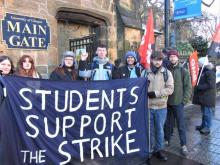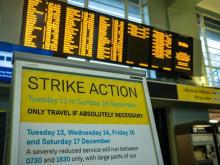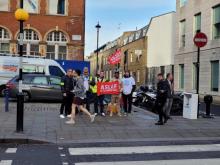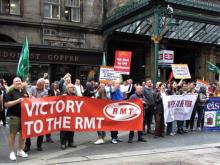Political statement from the 13th Congress of the CPBML, London, 21/22 April 2003. Capitalism is now in terminal decay, unable to feed, clothe, house, provide work for or meet the needs of the people of this country. From seeming synonymous with manufacture, capital is now its antithesis.
Unions

When a strike takes place, when workers withdraw their labour, they and their employers are confronted with the truth: workers are essential to capitalism.

In many ways the situation facing workers in Britain is as dire as it has been at any time since the Second World War. But there is a shining light: the army of the working class is on the move.

RMT general secretary Mick Lynch has slammed the government for scuppering a deal which could have prevented rail strikes in the run-up to Christmas.

The railway industry and its workforce enter 2023 with uncertain futures. So far rail workers have shown they are prepared to stand and fight for their interests, together with those of the industry…

Following significant progress in negotiations with university employers on pay, working conditions and pensions, the university staff’s union, the UCU, is suspending for two weeks the remaining seven days of its planned 18 days of strike action.

On 1 February, teachers in the National Education Union (NEU) joined other public sector workers on strike, the first of six days of national and regional strike action throughout England and Wales.

Mark Harper, prime minister Rishi Sunak’s new Secretary of State for Transport, failed to give any real indication to those working in rail or to passengers that he will in any way adequately address the industry’s current problems.

From 1 to 3 March Royal College of Nursing members at every employer in England with a strike mandate will be taking action including on night shifts.
As workers began to challenge the power of capital and employers at the start of the industrial revolution, trade unions were simply made illegal by the Combination Acts of 1799 and 1800.
